-
Free bus fares for tertiary and high school studentsWith rent, utilities, gas and food prices rising, the cost of public transport is not another factor young people should have to worry about. Free bus fares are about making sure everyone has an equal opportunity to get to places of education. No one should have to make the choice to stay home because they can’t afford to go to school or university. Many countries, including the UK, Australia, Germany and Italy have already made this equitable move and it is time we follow in their footsteps.263 of 300 SignaturesCreated by Anne Leakey
-
Climate Accountability NowWe rarely hear of government policies on climate change, the greatest threat to the future well-being of our children and grandchildren-and indeed of the whole planet. In 2019 the Prime Minister said that the climate crisis is ‘this generation’s nuclear free moment’ and Government declared a climate emergency. Arguably, Government has failed to treat it as such. I believe it is time to take action which makes a vital and lasting difference and to hold Government to account. Regular press conferences specifically about climate change will encourage reporters with specialised knowledge to attend and will give them the opportunity to question Government closely on this crucial issue. Knowledge is power! The majority of Kiwis believe the country is doing well in its response to the climate crisis. However, the international Climate Action Tracker rates our performance as ‘highly insufficient’. Press conferences will enable the public to be realistically informed about our CO2 emissions which will pressure the government to take action. New Zealand by itself can make only a small difference but countries with small economies are numerous and together have a significant effect on CO2 emissions. NZ could be bold and lead by example. Reducing our greenhouse gas emissions will help create a future without damaging storms, droughts and floods and will reduce the dangers of sea level rise. It will create a country of communities connected by efficient public transport and green, liveable cities for future generations.1,462 of 2,000 SignaturesCreated by Bernard Schofield
-
COVID in Our Prisons - An Open Letter to the Justice SectorOver the last two years, a crucial piece of the government response to the COVID-19 pandemic has been implementing health measures to contain and minimise the spread of the virus. This response has been met with widespread support because, as a country, we have understood that the health and wellbeing of every person in Aotearoa New Zealand is worth protecting. We address this letter to you now out of serious concern over the news of the spread of COVID-19 in prisons in Aotearoa. We call on you to apply a common sense health-based approach to better protect incarcerated people from COVID-19. This matter is urgent. As we are seeing, an Omicron outbreak within New Zealand prisons could easily overwhelm prison health-care services and put pressure on the rest of the healthcare services. Incarcerated people cannot meaningfully practice social distancing or have to forfeit what limited opportunity they have for leisure and social interaction to do so. The ongoing practice of double-bunking makes this even more difficult. Family or whānau visits are similarly restricted under the current Covid Protection Framework settings, adding further pressure and stress. The spread of COVID-19 in prisons particularly puts the health of older people, pregnant people, and those with relevant pre-existing health conditions (including COPD, respiratory illnesses and those with compromised immunity) at risk. There is an unacceptably high risk to Māori in prison, prison staff, whānau and communities from COVID-19. The Government must honour its obligations under Te Tiriti O Waitangi, and prevent this pandemic from further entrenching existing inequities for Māori. Reducing the number of people pulled into the justice system and being held in our prisons is essential to avoid further harm caused to Māori communities, individuals and frontline workers in the courts and prisons. This would also demonstrate the Government’s commitment to partnership and long-term wellbeing as promised in the Police strategy Te Huringa O Te Tai and the Department of Corrections strategy Hōkai Rangi. In signing this open letter, we are calling on the government to take action to protect people in the justice system from COVID-19, including through reducing the prison population, and ensuring effective health and safety measures are being implemented.420 of 500 SignaturesCreated by Kirsten Van Newtown
-
Overhaul the electricity sector so that power is affordable for all householdsWith the cost of living continuing to skyrocket in New Zealand the last thing our communities need is bigger power bills. As winter is approaching, I am especially concerned for vulnerable households, the elderly and people with medical conditions affected by the cold. By bringing back the low user power tariff you will be preventing further power poverty and financial hardship and make the electricity market more equitable.79 of 100 SignaturesCreated by Debbie Port
-
Make Civics Education a Core Subject in All New Zealand Secondary Schools.In New Zealand, we have less social cohesion, lowering levels of trust in the government and lowering voter turnout rates. These are urgent matters that require action. We believe it requires implementing education and training within schools so young people have the ability to learn before they are able to actively engage and understand how decisions are made. We believe this is one crucial action that will work towards a more democratic society. The 2020 general election showed that 78% of eligible voters from the age of 18 – 24 voted compared to 89.14% of eligible voters between the age of 65 – 69. The 2019 local body election showed that only 41.7% of all eligible voters voted. We can do better as a country. There is currently a School Leavers Toolkit (https://school-leavers-toolkit.education.govt.nz/en/government-and-voting/) which was announced by the Labour Government in 2019 as a resource to equip students with the core skills and knowledge they need to leave school. We agree with Chris Hipkins when he said “This is just a start” and while we appreciate the MoE acknowledging civics education is an integral part of a person's education. We want civics education in all New Zealad schools to be the end goal. We urge the Ministry of Education to create richer content to be taught in secondary schools in a way that is engaging, experiential and participatory whilst maintaining an apolitical tone that enables people to question and explore their own beliefs and values. “We need to make sure all our young people can leave school with the skills they need to get on in life…It shouldn’t be left to chance” – Chris Hipkins Civics in Schools is a group of passionate people who have a vision where every New Zealander is an active participant within our democratic processes. We want every person to have the tools and knowledge to vote, make informed decisions and effect change. We are a multi-generational group of people, campaigning and calling on Minister of Education – Hon Chris Hipkins, Associate Minister of Education – Jan Tinette, Associate Minister of Education (Māori Education) – Hon Kelvin Davis, Associate Minister of Education (Pacific Peoples) – Hon Aupito William Sio to make civics education a core subject within all New Zealand secondary schools. Civics in Schools in the media: https://www.stuff.co.nz/national/politics/local-government/127970420/petition-created-to-teach-civics-in-schools https://www.rnz.co.nz/national/programmes/afternoons/audio/2018834600/call-for-civics-to-be-a-core-subject-in-school-curricula592 of 600 SignaturesCreated by Joni Tomsett

-
Commission of Inquiry into dyslexia & neurodiversity in New ZealandDyslexia/neurodiversity affects around 15% of people worldwide, and impacts on their education, their working lives, and wider social interactions. Dyslexia/neurodiversity are best described as differences, as opposed to disabilities, but the way that society treats them turns them into disabilities. Dyslexia/neurodiversity are poorly understood and often overlooked in government policies. Currently New Zealand gathers no statistics about dyslexia/neurodiversity and New Zealand Human Rights legislation is silent on them. Many people with dyslexia/neurodiversity are not aware they have it and many people with it strive to hide it to avoid ridicule. Sadly, most teachers in most schools are poorly equipped to support children with dyslexia. Pre-service teacher training provides minimal dyslexia/neurodiversity instruction for new teachers entering the education workforce. Without change the challenges facing dyslexic children and adults are not likely to be addressed. Meeting the needs of Kiwis with dyslexia/neurodiversity is an equity issue. Sadly dyslexic/neurodiverse Kiwis have been ignored. It is demonstrably unfair that this group of Kiwis continue to be short-changed and treated poorly. This is also a major workplace productivity issue. No country can achieve to its full potential when 10 – 15% of its population are not fully engaged. This petition is about giving all Kiwis a fair go.7,954 of 8,000 SignaturesCreated by Mike Styles
-
Feilding Against Incineration - Don’t Burn Our Future!PYROLYSIS IS A FORM OF INCINERATION The EU classifies pyrolysis as a type of incineration because it involves the thermal treatment or combustion of waste, and many of the resultant pollutants and emissions are all similar across the different waste-to-energy technologies. The EU's Directive on Industrial Emissions provides the following definition (Article 3 (40)): “‘waste incineration plant’ means any stationary or mobile technical unit and equipment dedicated to the thermal treatment of waste, with or without recovery of the combustion heat generated, through the incineration by oxidation of waste as well as other thermal treatment processes, such as pyrolysis, gasification or plasma process, if the substances resulting from the treatment are subsequently incinerated.” The Feilding pyrolysis facility fits within this definition. INCINERATORS POLLUTE OUR AIR, LAND AND WATER While it is true that today’s incinerators are cleaner than older models, they’re still not perfect. Modern incinerators still release toxic chemicals that include dioxins, mercury and cadmium – substances that cause cancer, nerve damage and birth defects. Anyone living downwind from an incinerator is in danger of breathing in these dangerous chemicals and suffering the health consequences, like respiratory issues [1]. Toxins in the form of dioxins and furans and other toxic chemicals formed by the process of pyrolysis can leach into soil and groundwater and accumulate in food chains. Waste pyrolysis facilities produce outputs in the form of gas, oil, air emissions, liquid effluent and solid char that are all highly contaminated with toxic substances. All of these outputs require substantial treatment to be able to be used safely, and some components of the treatment facilities (e.g. filters, scrubbers) become extremely toxic and require disposal at special hazardous waste landfills. The oil produced from pyrolysis is particularly toxic when plastics are used as feedstocks and can contain bromine, zinc, calcium, chlorine, and sulphur making the oil produced by pyrolysis significantly more environmentally polluting than other engine fuel [2]. The Feilding pyrolysis plant will produce a by-product of 2.5 tonnes of solid ‘char’ per day. This extremely toxic material will need to be dumped in special hazardous waste landfills. It is in no way, shape or form the same as ‘bio-char’ which can be used as an agricultural soil amendment and it is highly misleading of Bio Plant to call this toxic by-product ‘bio-char’ [3]. Incinerator toxins falling back to land are regularly washed into waterways where they combine with leachate from hazardous waste landfills. These contaminants poison aquatic life as they flow through our streams and rivers into our harbours and eventually into our oceans. These toxins have the potential to enter our food chain at every stage of their journey to the sea. Environmental impact - Up to 70 tonnes of rubbish will be burnt in Feilding each day. - Incinerators release greenhouse gases - for each tonne of waste burnt, up to 1.2 tonnes of CO2 is produced. While pyrolysis does not burn waste directly, it produces gas and liquid fuels which will be subsequently burnt and will release similar levels of CO2. - It is claimed that the pyrolysis process will be ‘CO2 neutral’ and produce ‘renewable energy.’ This is completely false – the key ingredient will be plastics which are made from oil, a non-renewable resource. The synthetic gas and diesel that will be produced are also less efficient and more polluting than regular fossil fuels. Effects on the Feilding community - The health and well-being of residents - exposure to cancer-causing dioxins released into the air and potential odour nuisance. - Manawatū District Council locked into a long term and expensive contract. - Feilding is locked into producing rubbish to fulfil this contract instead of moving towards a sustainable circular economy and zero waste. - Endangering the wider community by increasing impacts of climate change and taking Aotearoa New Zealand further away from the Climate Change targets it needs to achieve. - Feilding could become a dumping ground for waste from other areas of NZ and possibly the Pacific. - May adversely affect land-values of neighbouring properties. - Employment - Bio Plant will employ very few people compared with ambitious zero waste programmes and initiatives such as reuse, repair, recycling and composting - which create as many as 200x more jobs than landfills and incinerators [4]. - Incinerators are being shut down around the world - Europe closed its last pyrolysis plant in Germany (Burgau plant) in 2015 due to climate and safety considerations [5]. Other plants are failing due to technical/engineering issues. In February two further plants in the UK alone closed due to technical failure. - There is no facility like this anywhere in NZ (and very few overseas). This is brand new technology and any consenting needs to be extremely rigorous. Feilding does not wish to be a guinea pig for this unproven technology. - We are very concerned that the proposed site for the Feilding pyrolysis facility is subject to a Treaty Claim. By failing to consult with Mana Whenua before offering this land to Bio Plant for a pyrolysis facility, Manawatū District Council are contradicting their goal of partnership with Mana Whenua. Incinerators destroy the progress we have already made. While we accept that waste is a problem, we know that incinerators are not the answer. Here in Aotearoa New Zealand, we can address our waste issues in regenerative ways that preserve rather than destroy valuable resources, prevent pollution, produce sustainable and innovative products and material systems, create jobs, and invigorate a zero waste circular economy. To help achieve this goal, we hope you will join us in opposing the Feilding pyrolysis facility proposal.730 of 800 SignaturesCreated by Feilding Against
-
Free N95 Masks For All!Given the extra risk of exposure and infection because of the recently announced changes, it is becoming increasingly urgent that N95, P2, or equivalent quality masks are available and universally accessible. The Government has said that all healthcare and border workers have access to N95 or equivalent masks. But as the Government opens up the border and eases restrictions internally, the general public of Aotearoa New Zealand need quality masks. These masks are comfortable and breathable, they prevent transmission and save lives. Prevention of infection is the best course of action. Along with concern for the capacity of our health system, we are extremely concerned about the wellbeing of people who cannot social distance or properly ventilate their spaces at work, where they live, or where they study. Good quality masks are vital for our wellbeing. Masks For All! References: 1. https://www.stats.govt.nz/news/annual-inflation-hits-a-three-decade-high-at-5-9-percent 2. https://www.stuff.co.nz/life-style/homed/renting/127544121/rents-still-rising-as-supply-pressures-remain501 of 600 SignaturesCreated by Communities For Public Health
-
Equal access to resources for all studentsThe Ministry of Education’s purpose is to shape an education system that delivers equitable and excellent outcomes for children and young people, and a strong theme from the Prime Minister is that we need to maintain momentum to close the digital divide, and address equity issues in education. Resolving digital inequality will underpin the stronger, fairer education system that is central to Labour Government policy. As of July 2021, only 910 out of approximately 2,500 schools are copyright compliant with a licence, while the balance either cannot afford the licence or are unaware of their legal obligations or consequences. This means that there are approximately 500,000 students in schools without a copyright licence. These students are either deprived of access to one or more media forms of these pedagogically vital resources, or their teachers are inadvertently in breach of copyright law in using these forms of content illegally. In New Zealand copyright licences are purchased by each individual school on a voluntary basis, as directed by their Board of Trustees. In Australia and the UK licences are purchased for schools by their respective governments. There, online resource centres that deliver licensed material to schools make it easy and cost effective to access the broad array of curated educational content. This petition asks the Minister of Finance and the Minister of Education to abandon the current school by school licence environment, created under the ‘Tomorrow’s Schools’ policy, and fund an all schools copyright licence for the benefit of our students and teachers. The Principal of Onehunga High School in Auckland, Deirde Shea, embodies the ethical and moral approach to copyright compliance. “Being licensed is the right thing to do in every sense of the word,” she says, “not only for our students and teachers to access and share more content, but what’s equally important is supporting the people that create the work. Because without those people creating content, we wouldn’t have the resources to teach the youth of New Zealand.” Quote from an article which originally appeared on EducationCentral.co.nz, 26 June 2019588 of 600 SignaturesCreated by Martin Drew
-
Open Letter: Better support for artists during the pandemicTens of thousands of people are now without any employment or income. I know in the past you have been a large supporter and advocate for the arts, and for this I thank you. I look forward to your response and more importantly your action.304 of 400 SignaturesCreated by Jazmine Mary
-
Save Our National Passenger Rail NetworkTrains connect communities and are an important part of climate change action. In late 2021, KiwiRail, announced end of same-day intercity services between Auckland/Wellington and Picton/Christchurch. They were to be replaced by luxury multi-day rail cruises. In a win for this campaign, KiwiRail recently reversed that decision and reinstated the Northern Explorer and Coastal Pacific effective September 2022. While this is a win for the travelling public, it is not the end of the issue. Much of Aotearoa New Zealand remains disconnected by from the rail passenger network and other services, like the the Capital Connection between Wellington and Palmerston North, remain under threat from underinvestment. This comes at a time when the Government has said it is committed to climate action and reducing inequality. Trains have connected friends and families for graduations, weddings, holidays, and business for generations. They have connected towns with the cities, and bought our country together. But a period of privatisation and decades of underfunding has limited the development and use of our national rail network. Trains have an important place in our future but it requires investment and planning from this Government. 🛤 Rail provides a more sustainable and climate friendly method of transport across the country. 🛤 Rail can invigorate the social and economic life of small communities by making them accessible to remote workers and tourists. 🛤 Trains can bring our diverse country together by connecting them to people and landscapes across wide distances. 🛤 Trains provide an accessible method of point-to-point transport for the elderly and disabled. 🛤 Trains can help take traffic off the roads and improve road safety. Rail is an important part of our past, but it should also be part of our future. Join the campaign to support the retention of a national passenger rail network.12,487 of 15,000 SignaturesCreated by Patrick Rooney

-
Protect Hawke's Bay riversThe Awa and groundwater of Hawke’s Bay can’t give any more. Streams are already drying up completely [1]. As we pollute and take water from the awa of Hawke’s Bay, they get sicker and sicker [2]. Climate change will mean less rainfall for the region, meaning the pressure we put on our wai now will be amplified [3]. Because of this, irrigators should be returning water to the rivers. The primary sector should be developing healthy, resilient food production, which is low water use and works with the natural environment not against it. This really is possible, if regional councils and the agricultural sector directs its thinking and resources in this direction. Instead we are seeing a push from irrigators to be able to take more, including 15 million cubic meters of water in central Hawke’s Bay [4]. Hawke’s Bay Regional Council is currently considering this application. If it is approved, it would put even more pressure on rivers that are already stressed and it would contribute to locking in the disaster of high water use food production. Te Mana o te Wai is the foundational concept of our national freshwater policy. It is the principle of putting the health of the rivers first so they can support the health of people. We the health of people and the environment is provided for, then commercial, for-profit water takes can be considered. Get behind the push to make sure Hawke’s Bay Regional Council makes decisions that give effect to Te Mana o te Wai. Join our community-powered submission to call on them to decline this application. By signing this petition you are confirming your support for Choose Clean Waters full submission, which you can read here: https://docs.google.com/document/d/1HM30bHIQf4G5XA1Yoi7cUfyWZxeFxqPaCdn4ltcK3Pg/edit?usp=sharing You can read more about the applications here: https://www.hbrc.govt.nz/services/resource-consents/notified-consents/groundwater-takes-ruataniwha-basin-tranche-2/ "Just thought it would always be here" - How irrigation is hurting Hawke's Bay's rivers https://www.youtube.com/watch?v=7prqI3r68gE References [1] “Extreme drought fears in Hawke's Bay after streams dramatically dry up” - 29 Jan 2021, RNZ https://www.rnz.co.nz/news/national/435391/extreme-drought-fears-in-hawke-s-bay-after-streams-dramatically-dry-up [2] This Is How It Ends: The long fight of the river people, 30 Oct 2021, Stuff https://www.stuff.co.nz/environment/300422562/this-is-how-it-ends-the-long-fight-of-the-river-people [3] New climate change report paints worrying picture for Hawke's Bay, 5 Nov, 2020, Hawke’s Bay Today https://www.nzherald.co.nz/hawkes-bay-today/news/new-climate-change-report-paints-worrying-picture-for-hawkes-bay/LS3HP67ZS5DWUEDQM5QCNFYHUQ/ [4] Central Hawke's Bay farming companies want 15 million cubic metres of groundwater a year, but can they convince the public?, 30 Nov 2021, NZ Herald https://www.nzherald.co.nz/nz/central-hawkes-bay-farming-companies-want-15-million-cubic-metres-of-groundwater-a-year-but-can-they-convince-the-public/ZHLZ3FXP3QD626LBSSGZAF5JKE/966 of 1,000 SignaturesCreated by Marnie Prickett





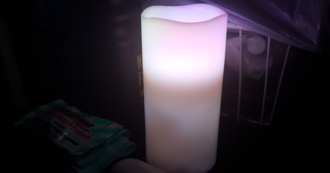
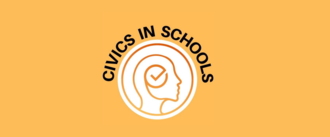.png)

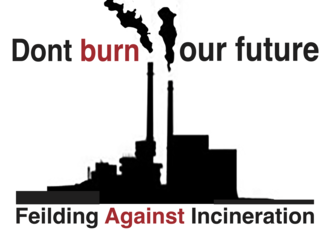
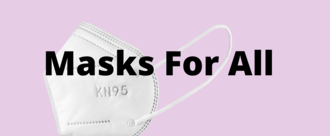_(Twitter_Post)(3).png)

.png)
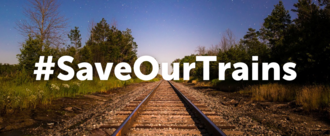.png)
